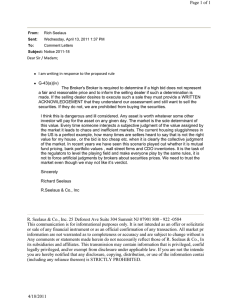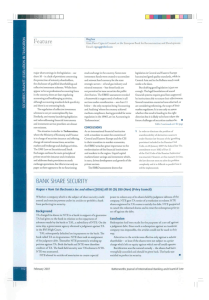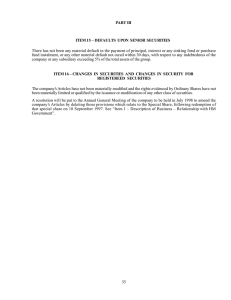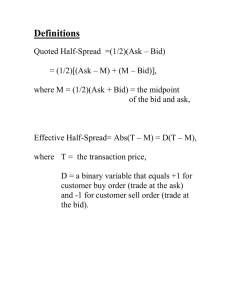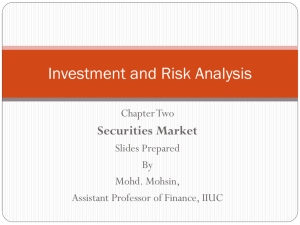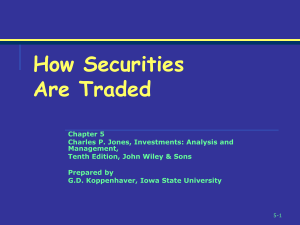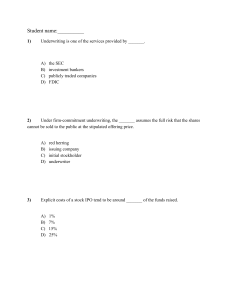Chapter 3 Primary market Secondary market
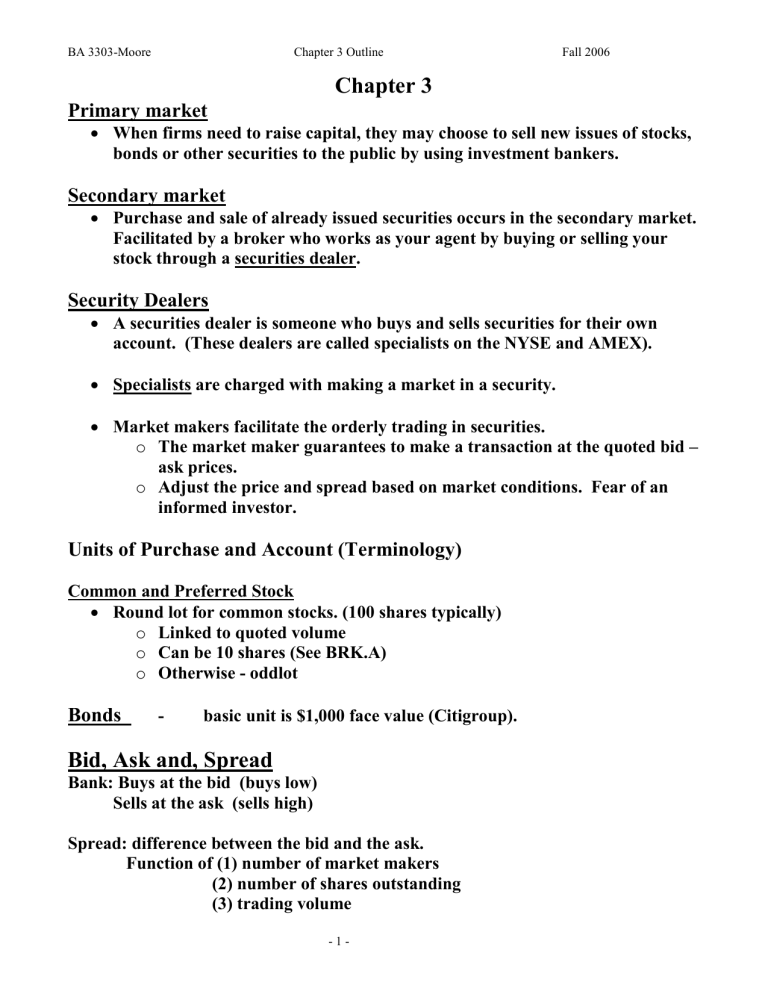
BA 3303-Moore Chapter 3 Outline Fall 2006
Chapter 3
Primary market
When firms need to raise capital, they may choose to sell new issues of stocks, bonds or other securities to the public by using investment bankers.
Secondary market
Purchase and sale of already issued securities occurs in the secondary market.
Facilitated by a broker who works as your agent by buying or selling your stock through a securities dealer.
Security Dealers
A securities dealer is someone who buys and sells securities for their own account. (These dealers are called specialists on the NYSE and AMEX).
Specialists are charged with making a market in a security.
Market makers facilitate the orderly trading in securities. o The market maker guarantees to make a transaction at the quoted bid – ask prices. o Adjust the price and spread based on market conditions. Fear of an informed investor.
Units of Purchase and Account (Terminology)
Common and Preferred Stock
Round lot for common stocks. (100 shares typically) o Linked to quoted volume o Can be 10 shares (See BRK.A) o Otherwise - oddlot
Bonds
- basic unit is $1,000 face value (Citigroup).
Bid, Ask and, Spread
Bank: Buys at the bid (buys low)
Sells at the ask (sells high)
Spread: difference between the bid and the ask.
Function of (1) number of market makers
(2) number of shares outstanding
(3) trading volume
- 1 -
BA 3303-Moore Chapter 3 Outline Fall 2006
Security exchanges – Main US Exchanges
o NYSE (EAS, 3 letters) o AMEX (3 letters) o NASDAQ national market (4 letters) o OTC:BB o Pink sheets
Types of orders
o Market order – buy or sell at the best price currently available. o Limit order – specify the price at which you wish to buy or sell o Day order – limit order that is good for the day o Good-till-canceled – limit order that remains in effect until executed or canceled. o See confirmation
Margin
o Borrow from broker part of the purchase price. o Margin requirement is currently 50% on common stocks –Reg T. o Margin = Equity/Total portfolio value o Financial leverage – magnifies gains and losses o Margin call – request for additional collateral if your account fails to meet its margin requirement.
Street name versus delivery
Short sales
Normally an investor buys a security and sells it later for a gain or a loss.
A short seller borrows the security and sells it with the goal of buying is later at a lower price.
Naked short sale – Reg SHO
- 2 -

